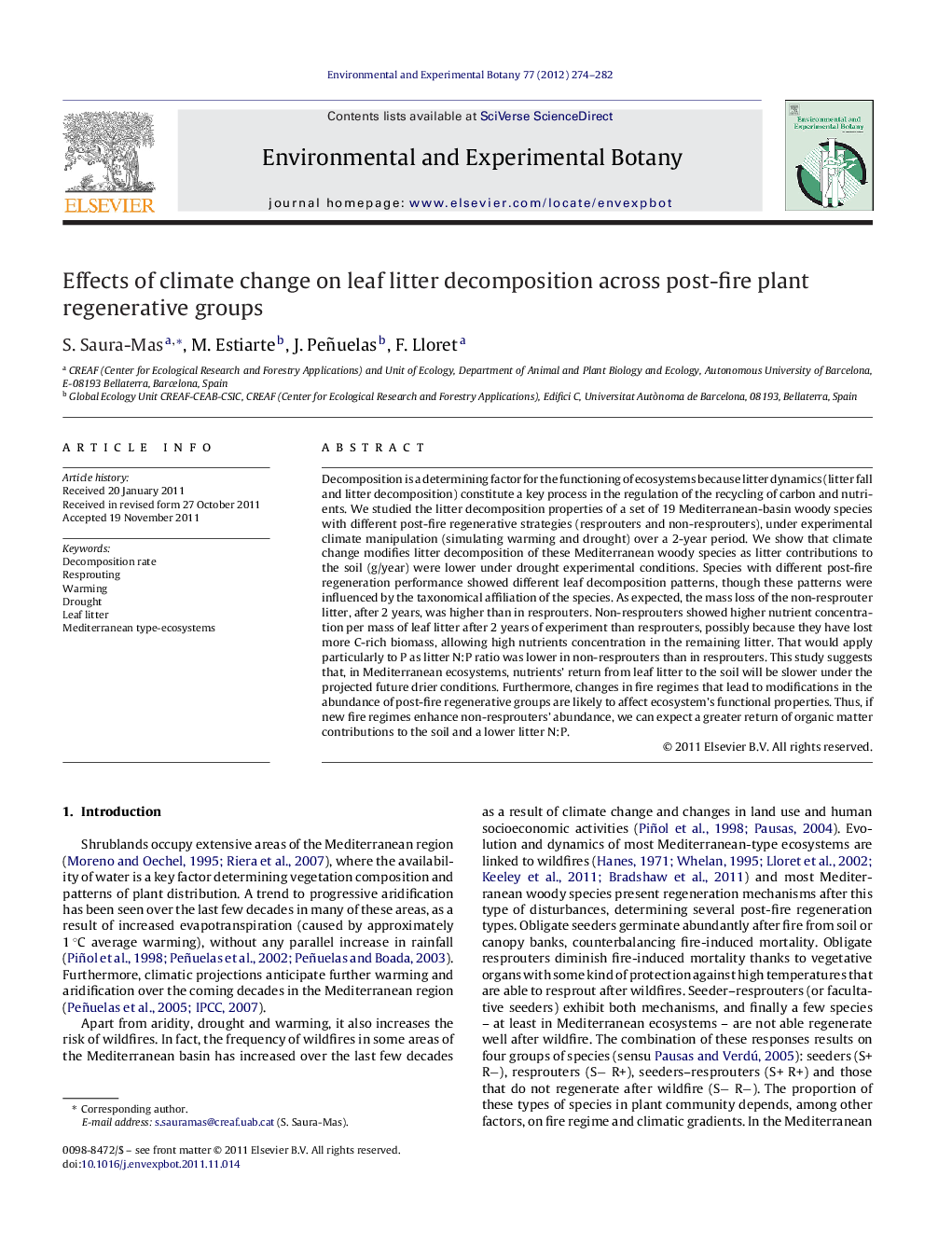| Article ID | Journal | Published Year | Pages | File Type |
|---|---|---|---|---|
| 4554693 | Environmental and Experimental Botany | 2012 | 9 Pages |
Decomposition is a determining factor for the functioning of ecosystems because litter dynamics (litter fall and litter decomposition) constitute a key process in the regulation of the recycling of carbon and nutrients. We studied the litter decomposition properties of a set of 19 Mediterranean-basin woody species with different post-fire regenerative strategies (resprouters and non-resprouters), under experimental climate manipulation (simulating warming and drought) over a 2-year period. We show that climate change modifies litter decomposition of these Mediterranean woody species as litter contributions to the soil (g/year) were lower under drought experimental conditions. Species with different post-fire regeneration performance showed different leaf decomposition patterns, though these patterns were influenced by the taxonomical affiliation of the species. As expected, the mass loss of the non-resprouter litter, after 2 years, was higher than in resprouters. Non-resprouters showed higher nutrient concentration per mass of leaf litter after 2 years of experiment than resprouters, possibly because they have lost more C-rich biomass, allowing high nutrients concentration in the remaining litter. That would apply particularly to P as litter N:P ratio was lower in non-resprouters than in resprouters. This study suggests that, in Mediterranean ecosystems, nutrients’ return from leaf litter to the soil will be slower under the projected future drier conditions. Furthermore, changes in fire regimes that lead to modifications in the abundance of post-fire regenerative groups are likely to affect ecosystem's functional properties. Thus, if new fire regimes enhance non-resprouters’ abundance, we can expect a greater return of organic matter contributions to the soil and a lower litter N:P.
► Litter decomposition of 19 Mediterranean-basin woody species was studied during 2 years. ► They presented different post-fire regenerative strategies and they were studied under experimental climate manipulation. ► Results indicate lower litter contributions to the soil (g/year) under drought conditions. ► Non-resprouters presented higher litter mass loss and lower leaf N:P ratio than resprouters. ► Climate change and changes in wildfire regimes are expected to affect litter decomposition processes.
